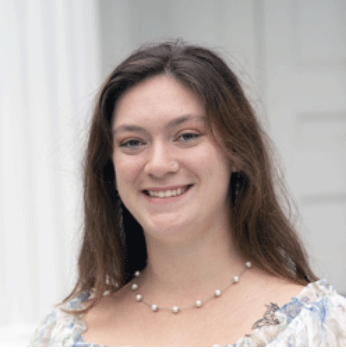Ms. Rylee Allen, a new addition to the Belmont Hill faculty this year, has had an immediate impact on the Belmont Hill music community. Teaching Digital Music Production and Music Composition, conducting the upper and lower school Jazz Bands, the orchestra, rock bands, and much more, Ms. Allen has showcased her deep passion for connection with aspiring musicians at Belmont Hill.
Growing up, music played a large role in Ms. Allen’s childhood and was a tradition in her family. Inspired by her grandparents who loved genres from “classical rock, to jazz, to classical,” and her father who “would play a lot of 90s alt-rock and hip-hop,” Ms. Allen’s music taste branched in all sorts of directions. Due in part to her fascination with music, and also the variety of genres she was exposed to, Ms. Allen’s ability of instruments growing up would broaden from her principal instruments, piano and flute. When she grew into elementary and later high school, her main music outlets were in school bands, playing the piano and flute, and later learning percussion instruments in high school. It was there that she made many lifelong friendships.
Her music teachers also played a large part in her early musical career, serving as a place to go for advice and second opinions. Ms. Allen would soon graduate high school, and study at Berklee, winning several awards, most notably the “Promising Music Educator Award.” At Berklee, Ms. Allen’s immense musical background would serve her well, as she received her Music Education degree while learning to play the alto saxophone, clarinet, trumpet, french horn, viola, cello, guitar, drums, and electric bass.
As Ms. Allen moved from college and into teaching, she realized the true importance and significance of music. She says, “music is like [a] language, always changing. I think when people get caught up in music “changing” they fail to realize that new generations will create new things. The arts are a direct reflection of a society’s wants and needs.” Music speaks where words fail, and functions as an accompaniment to important life celebrations. No matter where she is – a wedding, funeral, graduation – or how she is feeling, Ms. Allen emphasizes that “there is one thing I can always do, and that’s play music, listen to music, or write music.”
What drove her to pursue teaching was that she “found [her] wants and needs being heard and met in musical spaces.” She wanted to provide the same support she received from her music teachers and family growing up to others who shared the same passion for music. Her high school music teacher “was able to balance teaching fundamental musical skills with exploring our personal interests,” and this was something that really stuck with Ms. Allen. Although she had to learn the “boring” or hard things, the end product was arranging, playing, and performing pieces that she really enjoyed. Moving from learning the piano to studying at Berklee, Ms. Allen’s “musical spaces were my safe spaces, and when it comes down to it I am constantly striving to create an environment that motivates and asks a lot of its participants, while also making them feel comfortable to explore and express themselves.” Ms. Allen hopes to continue to provide a welcoming environment for musicians while also promoting the benefits and true power of music.
From a musician’s standpoint, Ms. Allen hopes to leave listeners “a little more whole than when they walked in.” Music is not always meant for uplifting times, so “the truth is that…my constant goal is really to give people a chance to connect with themselves and with others.” In conveying her music, Ms. Allen aims to lighten her audience, no matter the setting, and generate relaxation within the listeners.
Aside from music, Ms. Allen continues in the arts by “dabbling in writing, drawing, and painting.” According to her, if she had not pursued music education or music therapy, she would have sought out English/Language Arts. In a way, she personifies these “backup” plans, as drawing is her “home away from home or art away from music.” Other forms of art, such as drawing, are something that Ms. Allen uses for enjoyment; something she can do “without self-criticism built it.” Other mediums like visual arts serve as a platform where Ms. Allen can express herself, escaping her own self-judgment that she may otherwise feel while performing music.
From listening to her grandparents play classical rock, to teaching at Belmont Hill, Ms. Allen has, to say the least, accomplished quite a lot in the arts. Throughout her journey, three main concepts have stuck with her: “Every person should explore music. Even if you don’t consider yourself a “musician”, music can be remarkably powerful and healing.” She requests that everyone take a deeper dive into music, whether that be in finding a melody to connect with or lyrics that are meaningful. She also challenges people to be “open-minded listeners. You can learn a lot about the people around you, or about yourself, by maintaining a willingness to listen.” Opening one’s ears to listen to their surroundings, to music or not, roots them in their senses and enlightens them to the beauty of the world. Finally, she notes that no matter where you are in life, “the arts will be there for you in your times of need. Particularly because, in one way or another, the arts will support you through life’s biggest milestones.”





